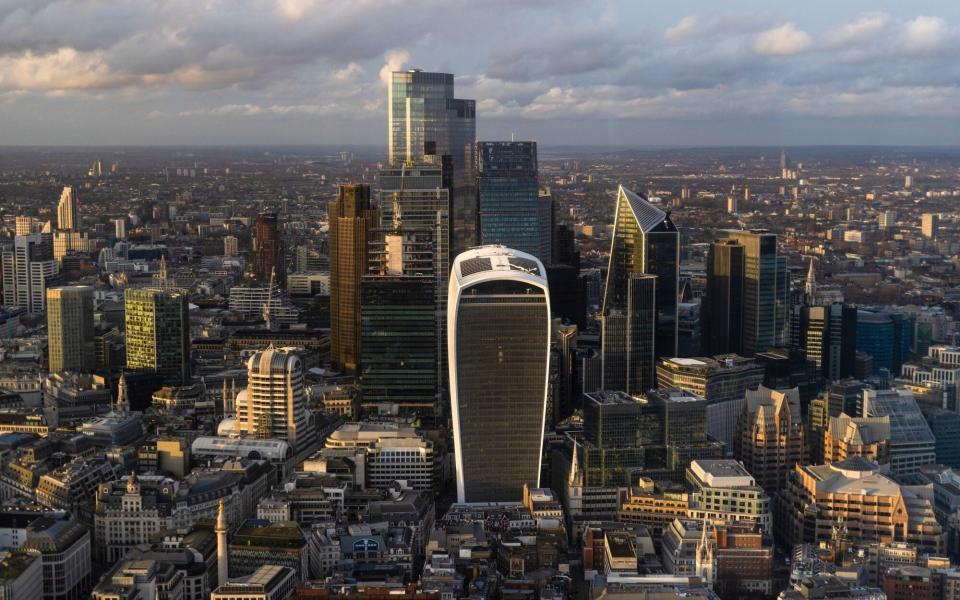Fall in bank bonuses blows a hole in the Government’s finances

An unexpected fall in bank bonuses has blown a hole in the Government’s finances as Labour and the Tories race to set out their spending plans.
Income tax and National Insurance contributions (NIC) revenues were almost £5bn lower than predicted in the financial year which ended last month, according to the Office for Budget Responsibility (OBR) – in large part because of a drop in payments to workers in financial services.
The new tax year is also off to a bad start, the OBR said, with revenues falling £200m short of forecasts because of weak bonuses to financiers.
It means the nation’s financial predicament is even worse than expected, making conditions even tougher for the winner of July’s general election as the next government faces tough decisions on tax, spending and borrowing.
Rishi Sunak decided to call a snap election last week after Treasury officials concluded there would be no money for “meaningful” tax cuts in an autumn budget, with just £6bn of headroom available following a giveaway in March.
The figures will also raise concerns about the health of the City following a slump in stock market floats and attempts to woo high earners to the likes of Paris.
Both Labour and the Conservatives have pledged to stick to tight borrowing rules, meaning that worse finances threaten to force the next chancellor to either raise taxes further or restrain spending.
The OBR said that borrowing in 2023-24 was £7.3bn above its forecast in March, with weaker than expected income tax and National Insurance payments accounting for £4.8bn of this overshoot.
The watchdog added: “In particular, financial sector bonuses have been weaker than anticipated.
“The overall bonus season was weaker than we expected in our March forecast.”
Figures from the Office for National Statistics (ONS) show bonuses paid to workers in financial and insurance activities in February were down by 9pc compared to the same month of 2023.
In March, bonuses were down 4pc on the year.
City sources said poor results from trading floors and a lack of mergers and acquisitions are one factor holding back pay packets among usual star performers in the Square Mile.
Britain is also struggling with a dearth of initial public offerings, as few businesses choose to list on London’s stock markets.
When dealmaking dries up, so do big handouts for bankers, accountants, lawyers and other advisers who rely on major transactions to fund their earnings.
The Government last year scrapped the cap on bankers’ bonuses, a hangover from before Brexit, in an attempt to boost the City.
Pay across the economy as a whole grew by almost 6pc in the first quarter of the year compared to the same period of 2023.
More growth is expected into the new financial year as the national living wage jumped by almost 10pc in April to £11.44 per hour.
The average worker in finance and insurance earned £2,617 a week in March, according to ONS estimates, far above the £682 paid per week to the typical worker in the economy at large.
But the end of growth in earnings for financiers is bad news for the Exchequer because well-paid workers pay higher rates of tax.
Isabel Stockton at the Institute for Fiscal Studies said that these preliminary numbers appear to break the trend of recent years, in which pay growth among higher earners has contributed to tax-rich economic growth, boosting the state of the public finances.
If it becomes a longer-term issue then there will be implications for the Government’s ability to hit its borrowing targets, which require that the debt falls between the fourth and the fifth year of each set of forecasts published by the OBR.
Risks to tax receipts from bonuses are only one of several challenges to the finances.
Debt interest payments are also a strain, and one which is set to continue as financial markets expect the Bank of England to wait until later in the year before cutting interest rates from their 16-year high of 5.25pc.
The Government’s debt interest bill last month alone was £8.6bn, a level affected by both the rate of interest charged in financial markets and the rate of inflation as measured by the retail price index, as payments on around one-quarter of the national debt are linked to living costs.
Rising worklessness is another problem holding back income tax revenues, while pressure is mounting to spend more on the NHS and social care.
Overall the public finances have not recovered from the pandemic.
The national debt stands at £2.7 trillion, which is equivalent to 97.9pc of GDP, up from 84.5pc on the eve of Covid.
The Government borrowed an extra £20.5bn in April, according to ONS estimates, which is almost double the £11.1bn deficit in the same month of 2019, which was the last April pre-pandemic.
The Treasury declined to comment.

 Yahoo Finance
Yahoo Finance 